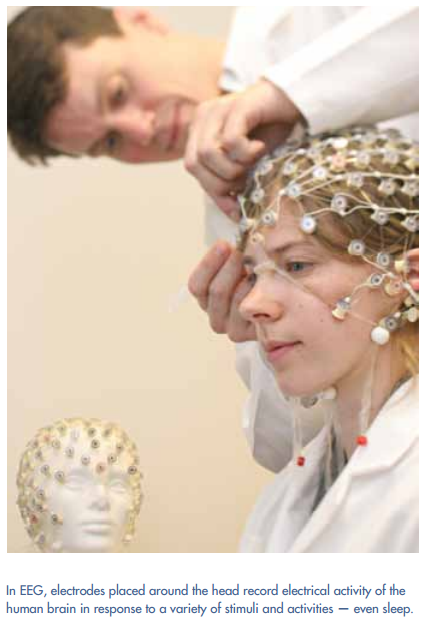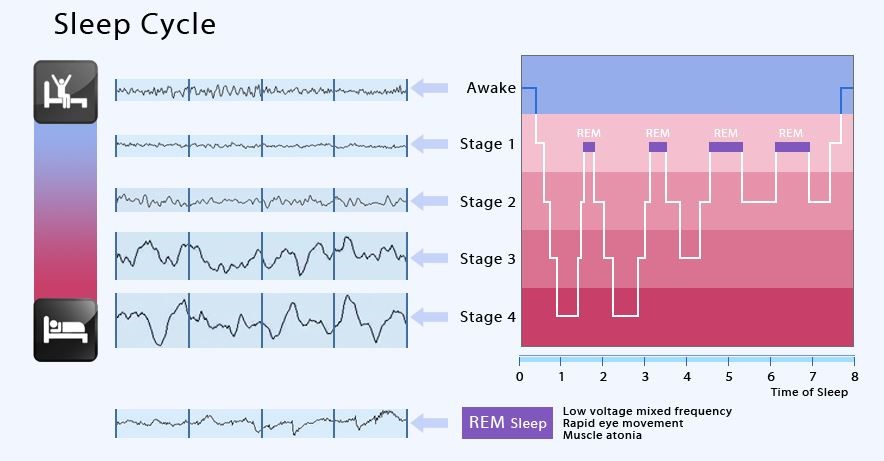CHAPTER 6: Sleep
IN THIS CHAPTER
Brain Activity During Sleep
1Although sleep appears to be a passive and restful time, it actually involves a highly active and well-scripted interplay of brain circuits, resulting in sleep’s various stages. These stages were discovered in the 1950s through experiments using electroencephalography (EEG) to examine human brain wabes. Researchers also measured movements of the eyes and the limbs.
2The results of these experiments were telling. Researchers found that each night, over the course of the first hour or so of sleep, the brain progresses through a series of stages during which brain waves slow down. This period of slow wave sleep is accompanied by relaxation of the muscles and the eyes. Heart rate, blood pressure, and body temperature all fall. If awakened during this time, most people recall only fragmented thoughts, not active dreams.

3Over the next half hour or so, brain activity alters drastically, from deep slow wave sleep to rapid eye movement (REM) sleep, characterized by neocortical EEG waves similar to those observed during waking. Paradoxically, the fast, waking-like EEG activity is accompanied by atonia, or paralysis of the body’s muscles. Only the muscles that allow breathing and control eye movements remain active. During REM sleep, active dreaming takes place. Heart rate, blood pressure, and body temperature become much more variable. Men often have erections during this stage. The first REM period usually lasts 10 to 15 minutes.
4During the night, these cycles of slow wave and REM sleep alternate, with the slow wave sleep becoming less deep and the REM periods more prolonged until waking occurs. Over the course of a lifetime, the pattern of sleep cycles changes. Infants sleep up to 18 hours per day, and they spend much more time in deep slow wave sleep. As children mature, they spend less time asleep and less time in deep slow wave sleep. Older adults may sleep only six to seven hours per night. What’s more, adults often complain of early waking that they cannot avoid and spend very little time in slow wave sleep.
